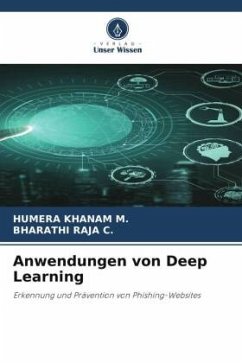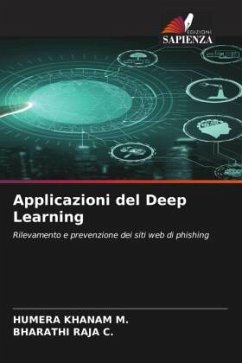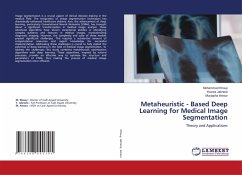
Applications of Deep Learning
Detection and Prevention of phishing website
Versandkostenfrei!
Versandfertig in 6-10 Tagen
34,99 €
inkl. MwSt.

PAYBACK Punkte
17 °P sammeln!
Phishing is one of the most common and dangerous attacks among cybercrimes. The aim of these attacks is to steal the information used by individuals and organizations. The phishing website will appear the same as the legitimate website and directs the user to a page to enter the user's personal details on the fake website. Phishing websites contain various hints in their contents and web browser-based information. Some of the previous work in phishing detection is the Machine Learning approach and fuzzy logic. Machine Learning algorithms can handle large datasets efficiently and the performanc...
Phishing is one of the most common and dangerous attacks among cybercrimes. The aim of these attacks is to steal the information used by individuals and organizations. The phishing website will appear the same as the legitimate website and directs the user to a page to enter the user's personal details on the fake website. Phishing websites contain various hints in their contents and web browser-based information. Some of the previous work in phishing detection is the Machine Learning approach and fuzzy logic. Machine Learning algorithms can handle large datasets efficiently and the performance of machine learning-based techniques relies on the types of classifiers, and features used. In the proposed method Deep Learning is used to implement the lp system to detect the phishing website.












